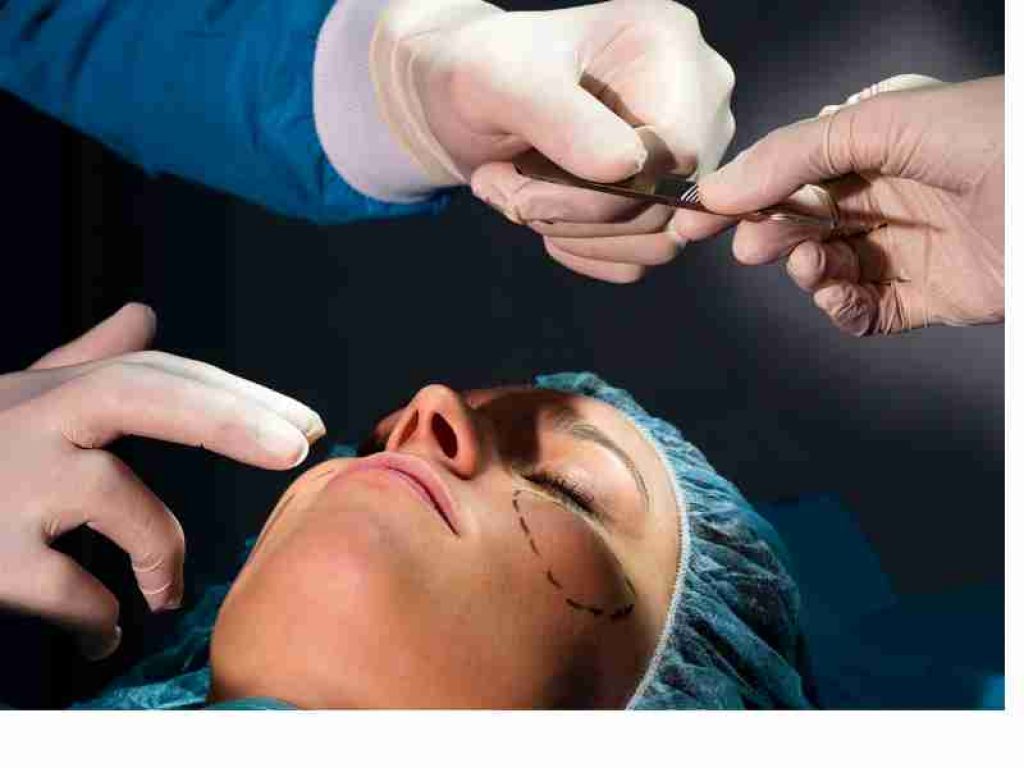
How To Become A Plastic Surgery Nurse?
This article provides information on how to become a plastic surgery nurse? and the necessary education and training.
What Is a Plastic Surgery Nurse?
Nurses specializing in plastic surgery assist doctors who perform reconstructive and aesthetic operations. Surgeons” assistants provide pre-and post-operative patient care and work alongside surgeons during procedures.
Botox and dermal filler injections are examples of nonsurgical therapies they may offer. Micro-needling, chemical peels, and hair restoration are some more options.

Nursing professionals with a focus on plastic surgery are able to seek employment in many locations including hospitals, private doctor’s offices, outpatient clinics, medical spas and wellness centres. Their job duties depend on the established policies of their particular workplace.
A hospital-based plastic surgery nurse may be responsible for assisting with operations, taking vitals, and caring for injuries while a private clinic counterpart might focus more attention on nonsurgical treatments, patient education, and postoperative care.
What responsibilities do plastic surgery nurses have?
Patients undergoing both minimally invasive and invasive surgical or cosmetic procedures are cared for by plastic surgery nurses in collaboration with physicians, surgeons, and other clinicians. Such procedures can range from the relatively simple chemical peel to the highly complex rebuilding of a child’s face following severe damage.
The basic responsibilities of a plastic surgery nurse include the following:
- Collecting medical histories
- Medication Administration
- Injectable, laser treatments, and chemical peels are just a few examples of dermatological, cosmetic, and aesthetic procedures that can be performed.
- Care before and after surgery
- Assistance with surgical procedures
- Responsible for keeping an eye on patients before, during, and after medical procedures
- Covering incisions and wounds
- Patient and family education
Depending on the facility in which they work, a plastic surgery nurse’s duties may differ. Nurses specializing in plastic surgery will discover various work environments and opportunities.
Where do plastic surgery nurses work?

Nurses specializing in plastic surgery may find employment in clinics, hospitals, and private practices. Some examples of specialized outpatient clinics are:
- Confidential Methods
- Surgical suites in hospitals
- Outpatient clinics
- Burn centers
- Clinics specializing in dermatology
- Hospitals that do surgery on patients outside of the hospital
- ENT (Ear, Nose, and Throat) clinics
- Clinics for children undergoing surgery
- Surgical hammams
- Surgery clinics in cosmetic
What qualities must a plastic surgery nurse possess?
If you want to succeed as a plastic surgery nurse, you should develop the following abilities:
Communication skills:
A vital part of caring for patients is ensuring they are relaxed and at peace. To recognize and resolve patient problems, skilled plastic surgery nurses will not only hear their patients out but also pay attention to their body language. If you’re a plastic surgery nurse, strong communication skills will help you explain the operation to patients in a simple way.
Dexterity:
Nurses specializing in plastic surgery may have to work on small body regions and administer non-invasive treatments. Agility is crucial to ensure your patient’s safety and quality of life while allowing you to deliver on their aesthetic expectations.
Compassion:
A nurse’s role in plastic surgery is to put patients at ease. When dealing with anxious patients, it might be helpful to demonstrate compassion and empathy. It can also aid in establishing credibility and a friendly relationship with patients.
Careful consideration:
Nurses specializing in plastic surgery may be in charge of keeping an eye on patients’ vital signs, giving them anesthetic, and documenting the entire process. As a plastic surgery nurse, it is essential to be detail-oriented in order to ensure patient safety, communicate with the surgeon, and maintain accurate documentation.
Organization:
The nurses specializing in plastic surgery are in charge of setting up operating rooms, sterilizing tools, and arranging surgical instruments. If the operating room is well-organized, the surgeon will easily locate the necessary instruments.
How to become a plastic surgery nurse?
Similar to registered nurses, plastic surgery nurses must complete additional training and qualifications. To become a nurse in plastic surgery, you can take the following routes:

Obtain a Bachelor’s Degree
The standard educational pathway for plastic surgery nurses begins with earning a Bachelor of Science in Nursing. It would help if you verified with the nursing board in your state that the school you’re considering offering undergraduate study has an approved nursing program before enrolling.
Becoming a nurse in plastic surgery can help you fulfill the educational criteria to become a registered nurse (RN) or a nurse practitioner (NP). Obtaining a bachelor’s degree in nursing usually takes four to five years of full-time study. You may choose from the following courses as part of your undergraduate curriculum:
- Anatomy
- Care for the Patient in General
- Health care reform
- Physiology
- Medical Research
- Biology
- Psychology
- Investigations in the field of nursingSurgery in general
Get your nursing license
Subsequently, you must take the necessary steps to obtain your nursing license. As a nurse, you should research the regulations of the state you intend to practice before submitting your application.
Along with your application, the nursing board in your state may also need you to submit your college transcripts and a background check. You must also apply for the Nurse Licensure Compact if you intend to work in more than one state. Understand the requirements for becoming a licensed nurse in your state by reading through the nursing board’s application guidelines.
Pass the NCLEX-RN exam
Each state’s nursing board employs the National Council Licensure Examination (NCLEX-RN), a standardized test, to assess if an applicant is ready to take the next step toward becoming a registered nurse.
The purpose of the exam’s multiple-choice, fill-in-the-blank, and matching questions is to assess your ability to apply the information you’ve learned to real-world scenarios. Candidates can find a variety of study programs to assist them in getting ready for the NCLEX-RN.
Search engines can help you learn about these groups and locate a suitable exam preparation strategy. There is a potential six-week delay between taking the NCLEX-RN and receiving your results. You can begin looking for positions as a registered nurse once you have received official notification of your passing score from your state’s nursing board.
Accrue more nursing experience as a licensed nurse.
To work in plastic surgery, you must first become an experienced registered nurse. Most plastic surgery nurses spend their first two to three years as registered nurses. This provides them with invaluable experience and knowledge that will serve them well as they move into more advanced roles.
To become a certified plastic surgery nurse, you might also need to work in the field of cosmetic nursing for a year. A few examples of how a registered nurse can obtain expertise in the cosmetics industry include:
- Working in a medical spa center as an assistant to a plastic surgery nurse
- Assisting a plastic surgery nurse in an outpatient setting
- Learning from an experienced plastic surgeon who has completed further training in cosmetic surgery.
Gain certification as an aesthetic nurse specialist.
Organizations that employ aesthetic nurse specialists usually prefer applicants who have obtained a certification showing they have the necessary skills to carry out specialized aesthetic treatments.
For registered nurses interested in aesthetic nursing, they can take the Certified Aesthetic Nurse Specialist examination offered by the Plastic Surgical Nursing Certification Board.
Passing this exam validates that you have the skills and understanding to work with patients undergoing cosmetic surgery and aesthetic procedures. Plastic surgery nurses must retake the PSNCB exam every three years in order to maintain their Certified Aesthetic Nurse Specialist status.
Apply for jobs
After you pass this exam, you can apply for jobs as a plastic surgery nurse. Create a well-written resume emphasizing your abilities and qualifications to impress potential employers. When listing your qualifications for the job, don’t forget to include your education history, professional experience, certifications and licenses.
With your updated CV, you can use a search engine to explore job opportunities in the field of plastic surgery nursing. You can tailor your search parameters to identify employment opportunities that meet your interests, experience, and education levels.
You can also connect with any professional contacts you acquired throughout your undergraduate school or past job responsibilities as a registered nurse to inquire if they know of any clinics employing plastic surgery nurses. A referral from one of your business connections could boost your chances of standing out among other job applicants.
How much does an RN specializing in plastic surgery make?
Plastic surgery registered nurses in the United States can expect to earn an average salary of $84,228 per year as of the 7th of February, 2023. Using a basic wage calculator, it comes out to about $40.49 per hour. That works out to $1,619 a week or $7,019 per month.
What are Top Best Paying Related Plastic Surgery RN Jobs in the U.S.?
There are at least five comparable professions that offer higher annual salaries than those of a plastic surgery nurse. Plastic Surgeons, Craniofacial Surgeons, and Pediatric Plastic Surgeons are just a few of the more well-known examples.
Notably, the average compensation for a Plastic Surgery RN is $84,228, and all of these positions pay between $93,761 (111.3%) and $249,508 (296.2%) more. If you are a qualified Plastic Surgery RN, you can increase your income by applying for one of these related occupations.
What are Top Highest Paying Cities for Plastic Surgery RN Jobs?
The average compensation for a Plastic Surgery RN in these 10 cities is higher than the national average. The most prestigious city on this list is San Jose, California, followed by Oakland and Hayward.
Hayward, California, is $15,490 (18.4%) above the national average, while San Jose, California, is $18,773 (22.3%) above the average of $84,228. Moving to one of these 10 cities as a Plastic Surgery RN is a very good financial move, with an average salary greater than the national average.
Finally, it’s important to remember that there is little room for upward income mobility because the average salary for these top ten cities differs very little (only 7%) between San Jose, CA, and Wasilla, AK. Considering the location and compensation for a Plastic Surgery RN position, a lower cost of living may be the most important thing to consider.
What is the career outlook for Plastic Surgery Nurse?
There were 17.5 million surgical and minimally invasive operations, according to the annual report of the American Society of Plastic Surgeons (ASPS). Approximately 7.23 million people received Botox, representing a two percent increase; likewise, breast augmentation surgery was performed on over 290,000 individuals.
All these operations require the expertise of nurses. The popularity of cosmetic surgery and the number of procedures performed yearly continue to rise. The BLS anticipates a 19% increase in the nursing workforce between 2012 and 2022. There’s no doubt that the need for several people entering the area of plastic surgery nursing will keep rising quickly.
FAQ’s
How many years is plastic surgery?
The standard residency program for plastic surgeons lasts 6 years, with the first 2 years spent on general surgery training and the subsequent 4 years devoted to specialized plastic surgery. Each “module” in plastic surgery residency covers a certain subspecialty or topic.
Is it difficult to undergo plastic surgery?
It has been estimated that over 40% of surgeons experience burnout, and a recent American Society of Plastic Surgeons (ASPS) survey found that over 25% of plastic surgeons exhibit indicators of professional burnout.
Where exactly does plastic surgery go wrong?
Infection of the surgical wound might increase scarring and necessitate further surgery. Subcutaneous edema is the accumulation of fluid under the skin. Minor bleeding may need more surgery, or major bleeding necessitates a blood transfusion—the abnormal formation of scar tissue resulting from skin damage.
Is plastic surgery in high demand?
30% of plastic surgeons say their business has more than doubled despite the economy, and 75% say demand has increased.







